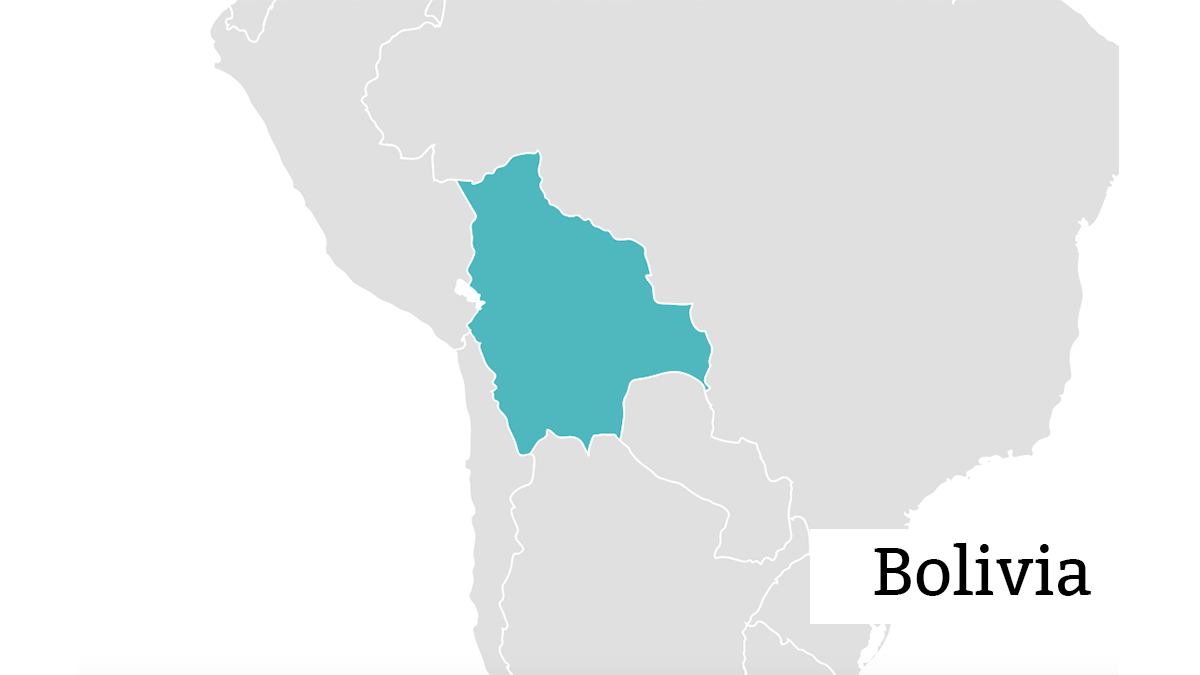
Bolivia is a country where a large number of women are in a disadvantaged economic position due to a complex combination of socioeconomic and cultural barriers. According to the World Bank, in 2015, only 54.3% of women were employed or actively searching for a job, compared to 78.7% of men. In addition, the monthly income gap between women and men was around 22%, and one in three women had vulnerable employment, such as unpaid family work. In a country where more than 40% of the population is indigenous, the intersection of gender-based inequalities with ethnic and race-based disparities makes the situation even more challenging for indigenous women.
In Bolivia, including women in the digital economy has represented a significant challenge, given the troubling disparity between men and women in accessing equal opportunities to improve their living and learning conditions. According to the GSMA, women who live in low- and middle-income countries are 10% less likely to own a mobile phone and 23% less likely to use mobile internet than men. In countries like Bolivia, women are often less confident in their ability to independently acquire the digital skills needed to use a mobile phone, and are more concerned with the consequences of making mistakes. As in other Latin American countries, a large number of the women in Bolivia who do own a mobile phone predominantly use the phone for basic communication, but not for accessing other digital tools and services.
A lack of digital skills is one of the key barriers preventing women in Bolivia from using mobile internet and participating in the digital economy. If not addressed, this issue risks leaving women behind as societies and economies digitise.
Mujeres Conectadas is an initiative that was launched in 2018 by Tigo — a subsidiary of Millicom, which is a provider of cable and mobile services in emergent markets in Latin America — and Institución Financiera de Desarrollo (Crecer IFD), which provides financial and development services to women with limited financial resources. Mujeres Conectadas was created with the aim of integrating more women into the digital economy and allowing them to access more and better development opportunities.
Mujeres Conectadas expects to help bridge the gender digital divide in Bolivia by 8% and to strengthen the participation of women in the digital economy, which will directly stimulate Bolivia’s economic growth. Its creators envisage achieving these goals by equipping women with mobile technology tools, digital literacy, and entrepreneurial skills. Mujeres Conectadas also seeks to broaden women’s access to financial knowledge and resources that can be used as springboards for starting or expanding their own businesses.
This digital inclusion programme started with the development of educational modules, face-to-face training workshops, and delivery of tablet computers. Tigo developed the modules of the programme training, which was structured to have a duration of six months on a flexible curriculum, and which covered topics, such as women and technology, internet and social media, browsers and search engines, email and applications, education and business application, digital security, and digital parenting.
Meanwhile, Crecer IFD was in charge of delivering the training. To achieve large-scale impact, 24 lead facilitators trained 379 field facilitators through in-person sessions. The latter would be responsible for delivering face-to-face training to women in different regions of Bolivia. In addition to this, Crecer IFD developed a digital platform to provide additional online training support to the field facilitators.
Thanks to this initiative, thousands of women in Bolivia have been trained on how to use mobile devices, browse the web, use social media, and create small business websites. From 2018 to 2019, 97,000 women in small provinces across Bolivia received training as part of the Mujeres Conectadas programme. By March 2020, the project had benefited 187,000 women of the following Bolivian provinces: La Paz, Cochabamba, Oruro, Chuquisaca, Potosí, Tarija, Santa Cruz, and Pando.
Mujeres Conectadas has the potential to help bridge the gender digital gap, expand economic growth, and promote social development, as digital inclusion offers greater opportunities for women to overcome poverty, build confidence, and become financially independent. Additionally, access to digital financial services and tools can increase the participation of women in the workforce and offer opportunities for women in the formal market economy — opportunities that offer important benefits for the whole nation, since the full incorporation of women’s capacities into the labor force would contribute directly to national growth rates.
In 2019, Mujeres Conectadas was awarded second place of the InnovaTIC Bolivia Prize, organised by the Bolivian Foundation for the Development of Information and Communication Technologies (Fundetic), with the support of the Development Bank of Latin America. This prize seeks to give recognition to advances in the use and application of information and communications technologies.
